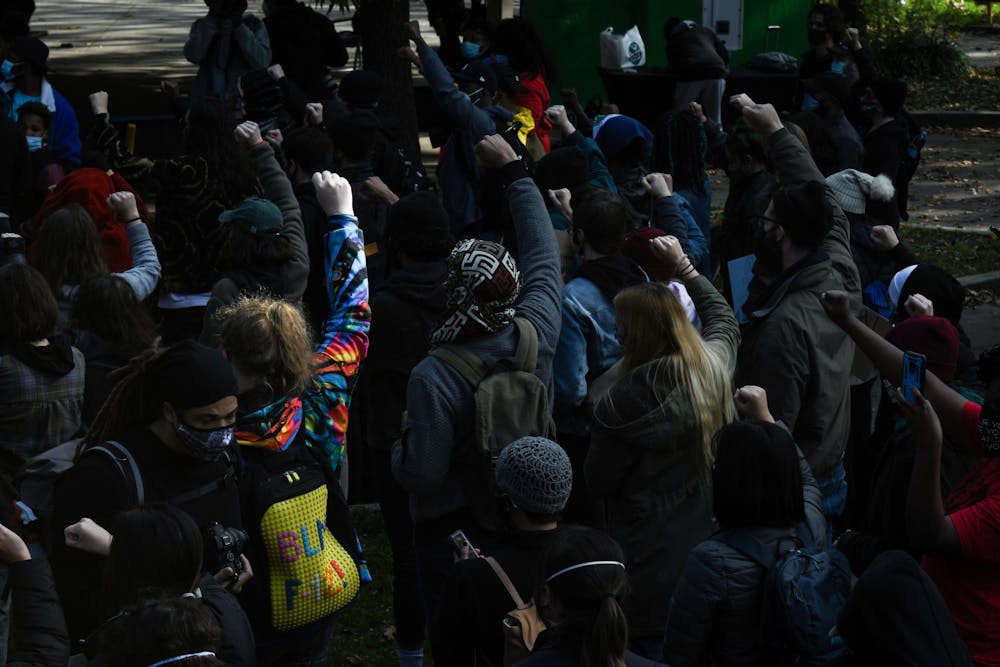
My name, Surayya, has always been a point of contention among my family members. Surayya is a distinct name that means ‘’star’’ in Arabic and ‘’noble’’ in Swahili. I beam with pride at the sound of my name. The name my parents taught me to take pride in, however, is questioned by some. Upon hearing that my parents named me Surayya, many relatives feared for my job prospects. "Is anyone going to hire her with a name like that?" They were open about their reservations. "Maybe Sarah, a traditionally Caucasian name, would work a little better." WIth a name like Sarah, no one would suspect that I was Black, providing me with an advantage in the hiring process.
Unfortunately, their reservations were valid. Studies show that underrepresented individuals with ethnic names are less likely to make it past preliminary interview screening. When Wells Fargo’s CEO said that there is a ‘’limited pool of Black talent to recruit from,’’ my stomach churned. I’m surrounded by talented BIPOC individuals every day. There is no absence of Black talent. Instead, there is simply an unwillingness to mediate your hiring processes to support or validate their candidacy. The issues with Fortune 500 companies are numerous. There are racist hiring algorithms, an elusive but widely accepted concept of ‘’culture fit’’, higher turnover rates for Black and Latinx employees, and Chief Diversity Officers who aren’t even allowed to improve their corporation’s multicultural landscape.
Our lives aren’t independent of others. If one BIPOC is discriminated against in a company, we collectively face discrimination. We are interdependent, what affects one affects everyone. It’s time to monitor our values and consider if they align with the companies whose acceptance we pursue. Recently, there’s been a lot of conversation around diversity, equity, and inclusion. All this conversation is great, but these companies still need to be held accountable for not exemplifying the values they claim to abide by. I propose that we judge each job or internship offer on three dimensions: inclusivity, equity and fairness, and transparency.
Inclusivity is more than just numerical representation; it is also a feeling that you can be your authentic self at your place of employment. Yes, there are standards we must comply with to survive in the working world, but do you find yourself switching your personality or speech? Do you believe in a ‘’personal brand,’’ or having a separate persona inside and outside of work? When reflecting on my values, I decided that inclusivity is what I value most. It's tiring to be ''on'' all the time. Look for a company where you can be your most authentic self.
Equity and fairness are also important pillars of an anti-racist organization. If your company is paying women or people of color less than their male or white coworkers, they must reverse those inequities. Fairness is using culturally relevant frames to evaluate candidates. It is inequitable to judge diverse candidates by ‘’objective’’ metrics and standards that aren't really all that objective. Equity also includes access to mentoring, support, and promotions. What does the organization’s turnover rate look like for BIPOC employees? Look into their policies and observe and analyze their culture. What does their leadership structure look like? According to CNN, there are only four black Fortune 500 CEOs. If there are relatively few BIPOC managers, then there is an underlying problem involving promotion discrimination.
Transparency is the third pillar. Do they gloss over diversity issues, or are they open and honest about them? Honesty is the first step to reversing systemic patterns. Morgan Stanley’s Chief Diversity Officer was removed from her position for reasons that remained hidden from the rest of the organization. The truth is, she was fired for aiming to increase the support that Black junior bankers receive when starting at the firm. She saw the inequities but had no power to ameliorate them. She was tokenized, given a ‘’platform’’ to create structural changes without receiving the necessary executive backing to do so. Morgan Stanley's diversity, equity, and inclusion tragedy highlights the need to look deeper when Penn students consider which companies they intern at or work for. An organization’s notion of distributive justice is crucial. You want a workplace that supports a just process for resolving issues of discrimination and addressing inequalities.
The truth is, it isn’t enough for your dream company to write a #BlackLivesMatter article or donate to an anti-racist organization. We need inclusion and for companies to champion the unique qualities and experiences of their employees. As DEI expert Stephanie K Johnson effectively states in her book Inclusify, there is power in uniqueness. Ask yourself: Is the company you’re working with or interning for leveraging your uniqueness for good?
I’m Surayya, not Sarah. My Blackness will never go out of style. I’m working hard to find a company that does more than talk about inclusivity, equity, and fairness, but one that actually manifests those ideals in their actions.
If not, I can always build my own.

SURAYYA WALTERS is a Wharton junior from New Rochelle, N.Y. concentrating in Marketing and minoring in Urban Education. Her email address is surayyaw@wharton.upenn.edu.
The Daily Pennsylvanian is an independent, student-run newspaper. Please consider making a donation to support the coverage that shapes the University. Your generosity ensures a future of strong journalism at Penn.
Donate



